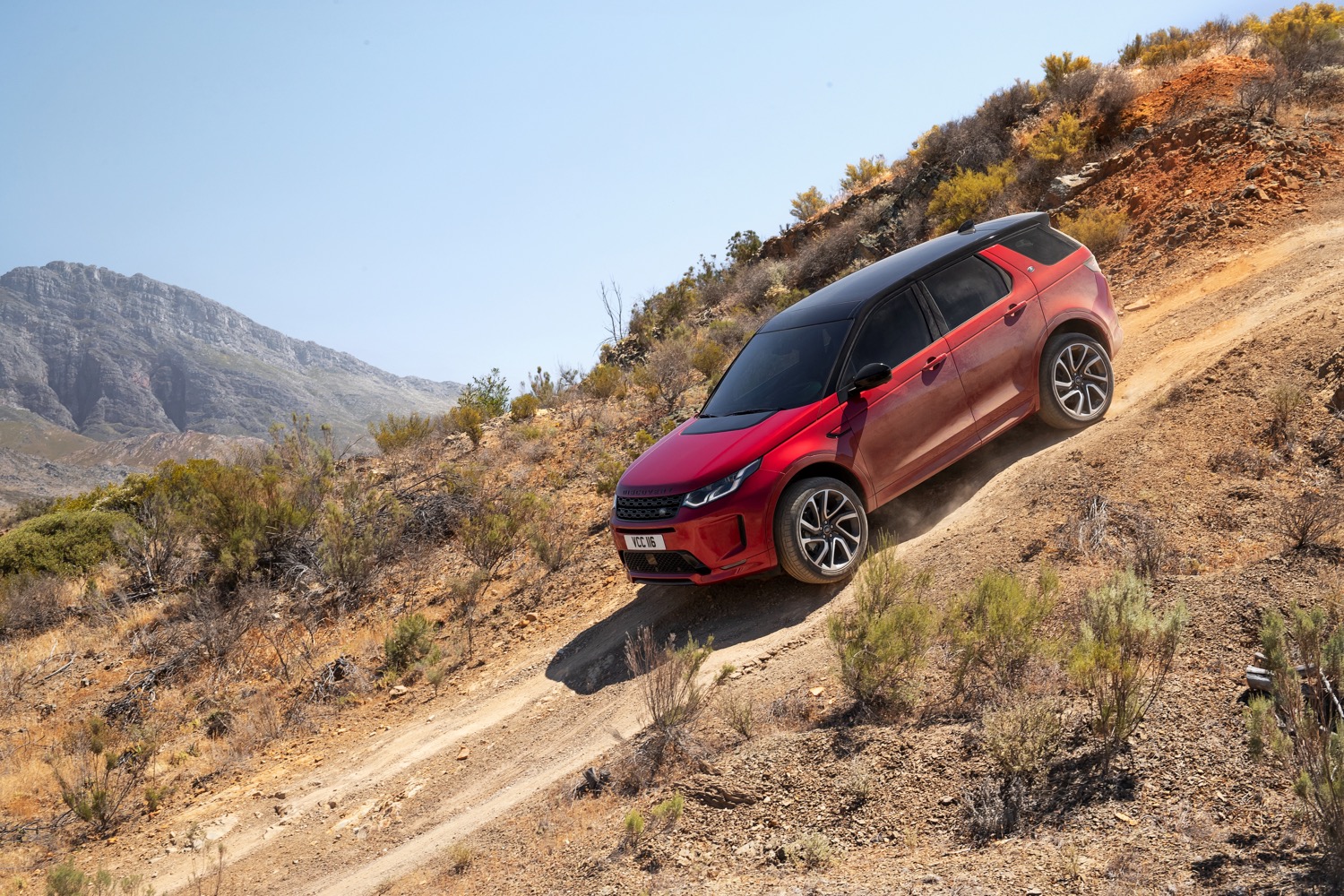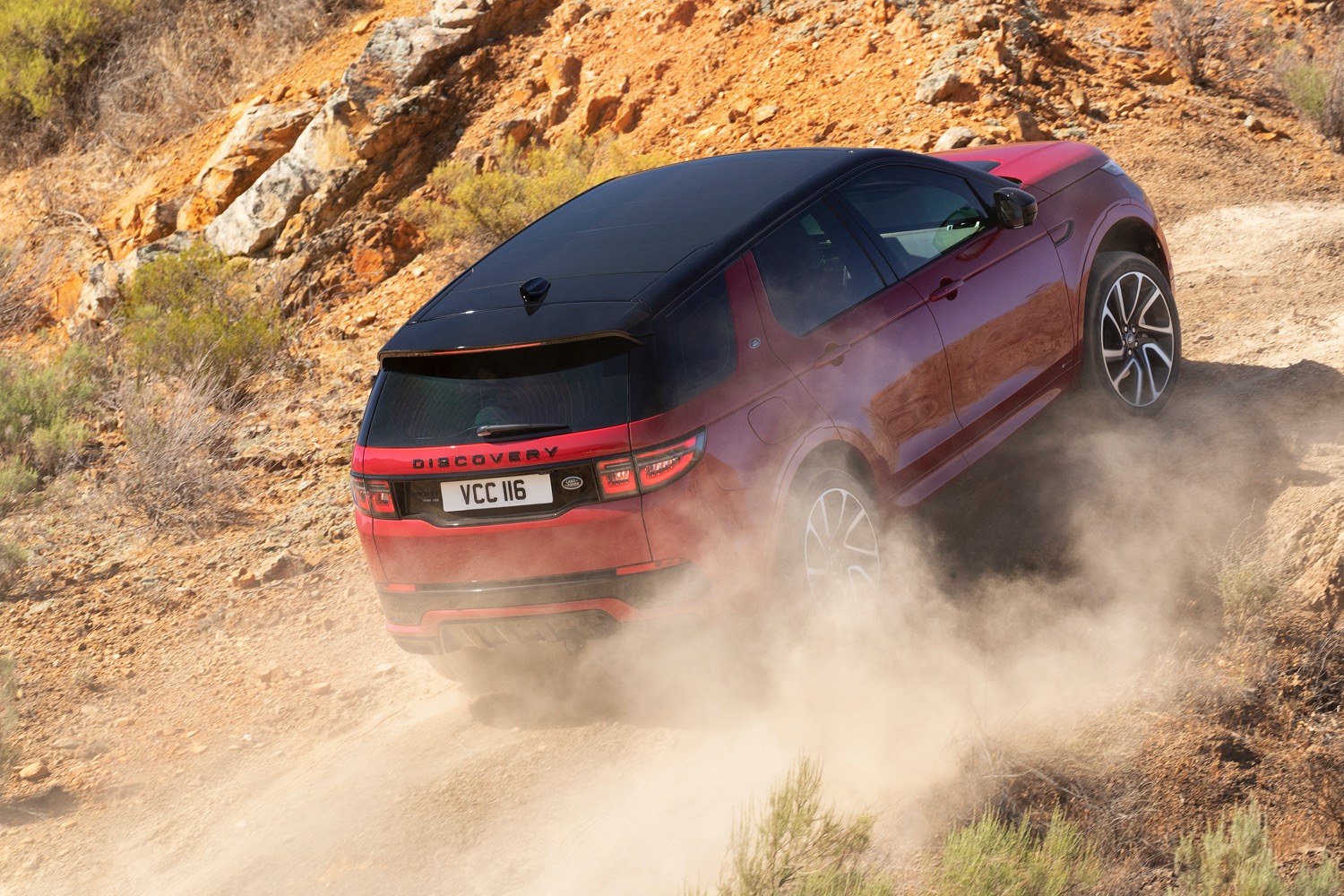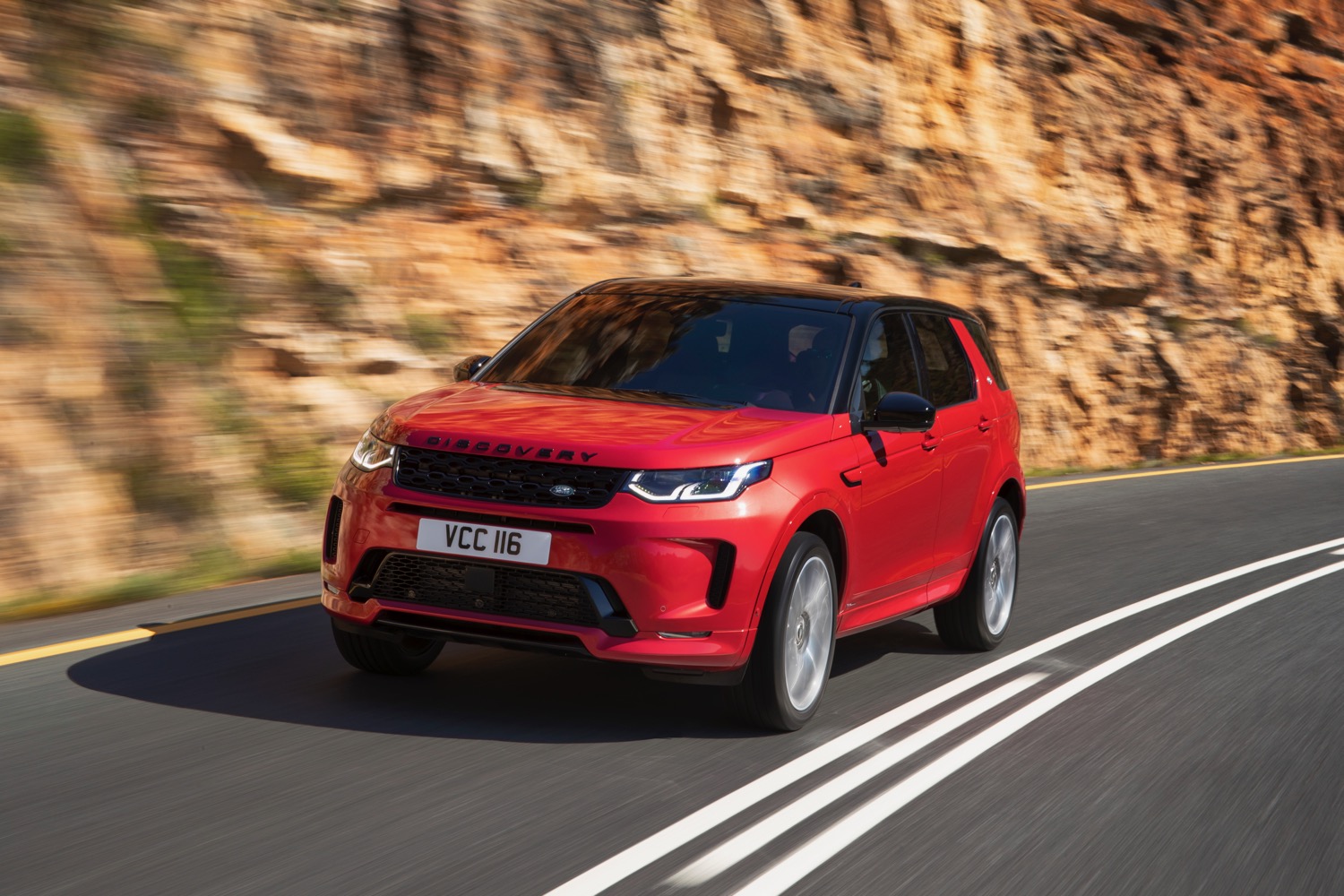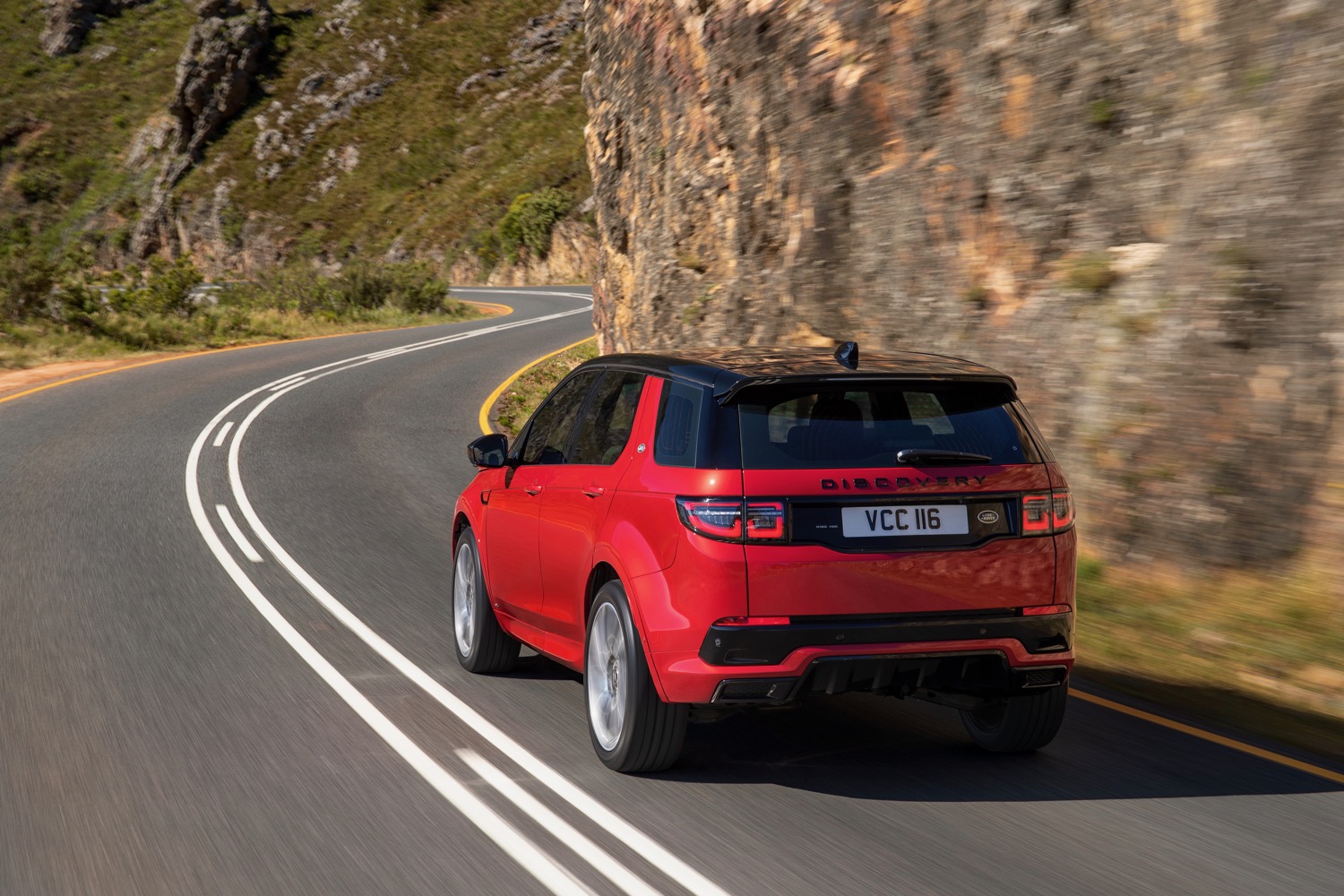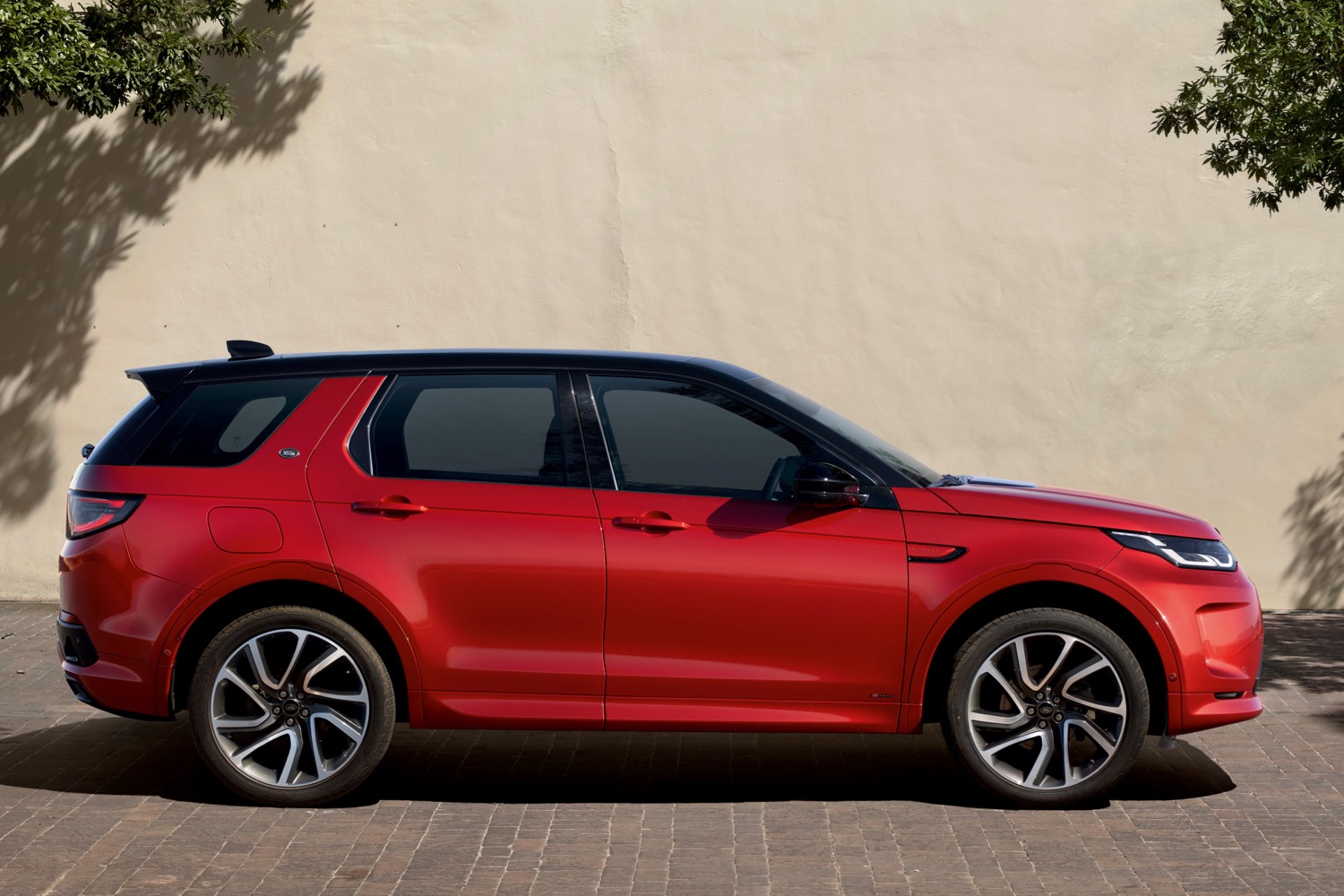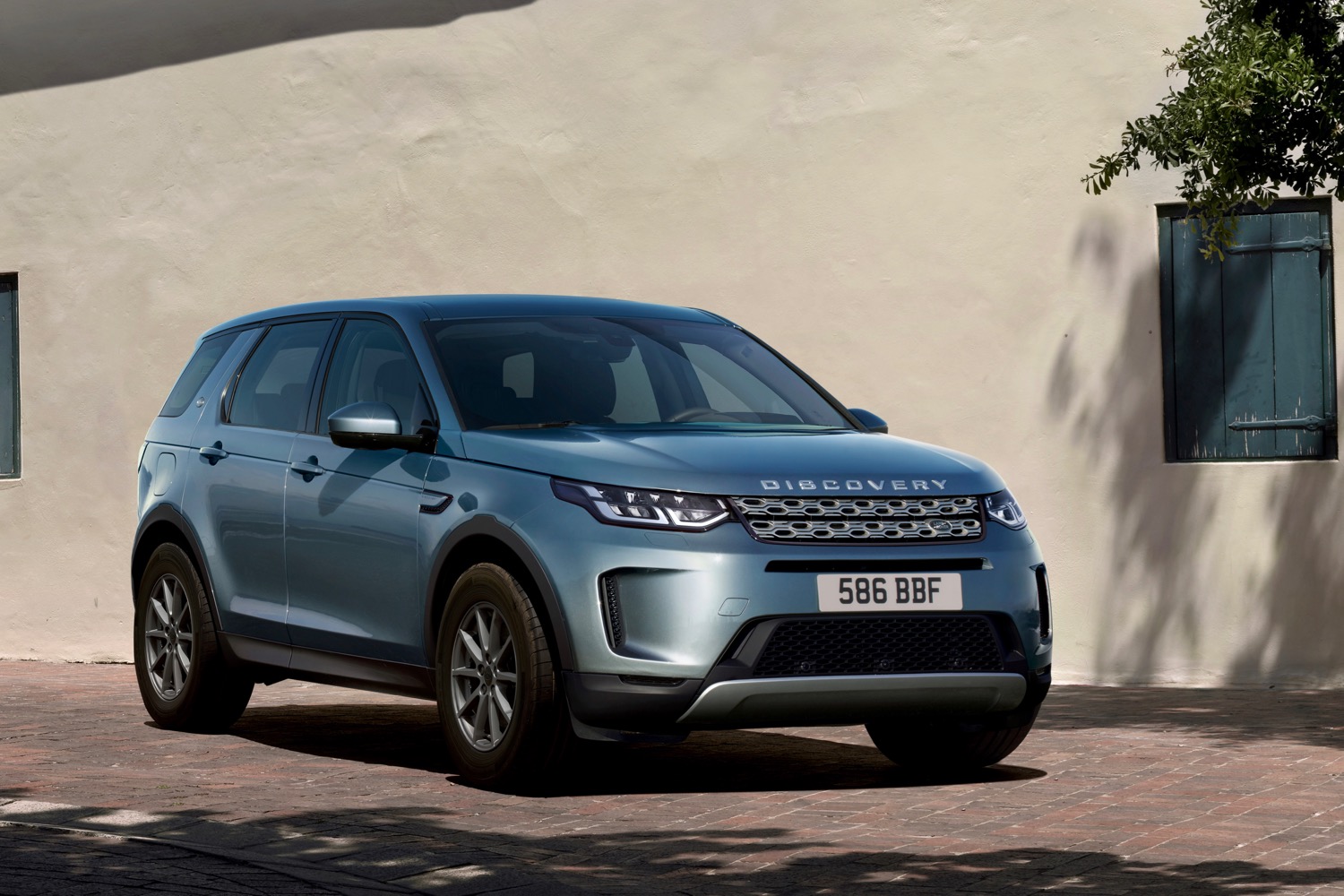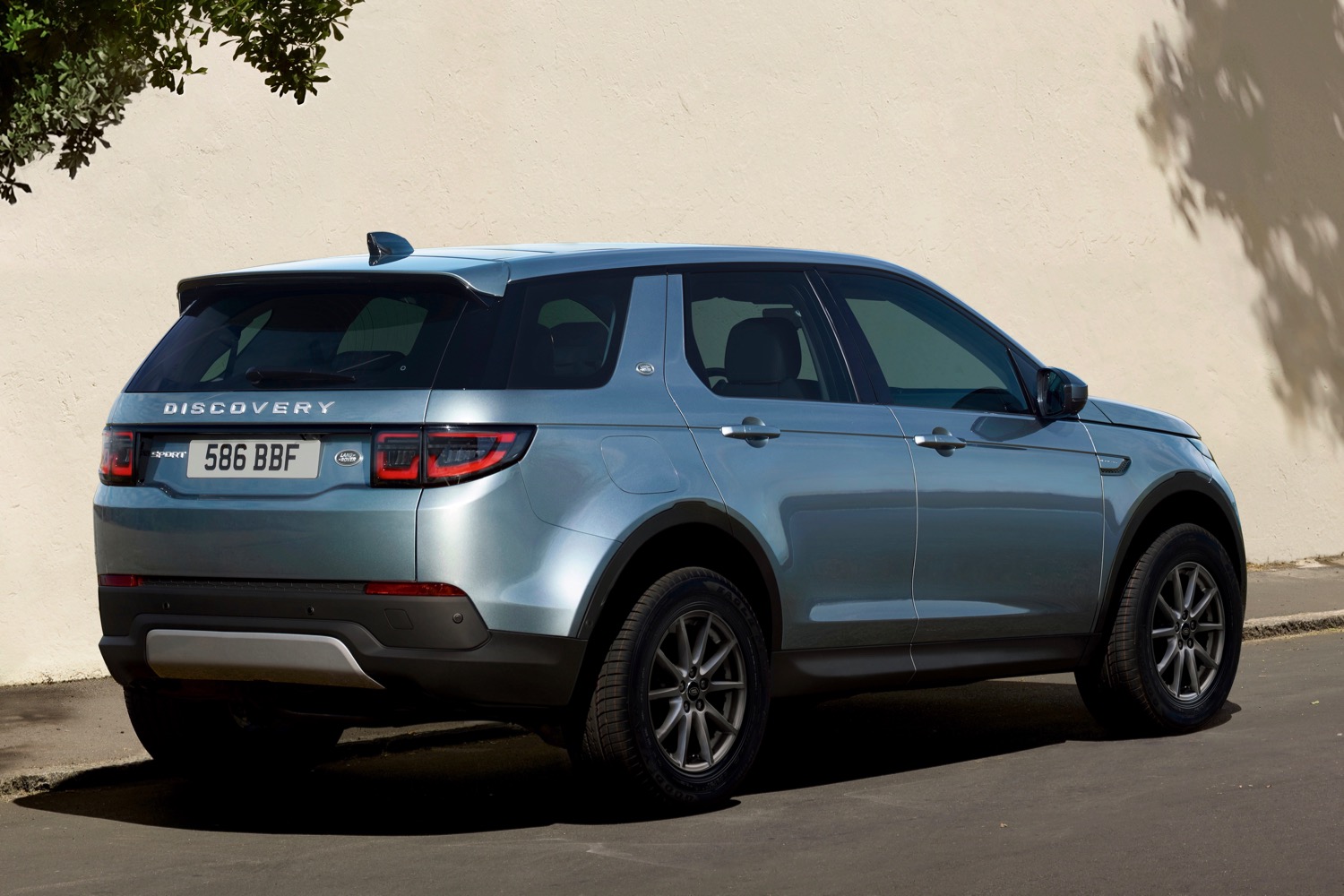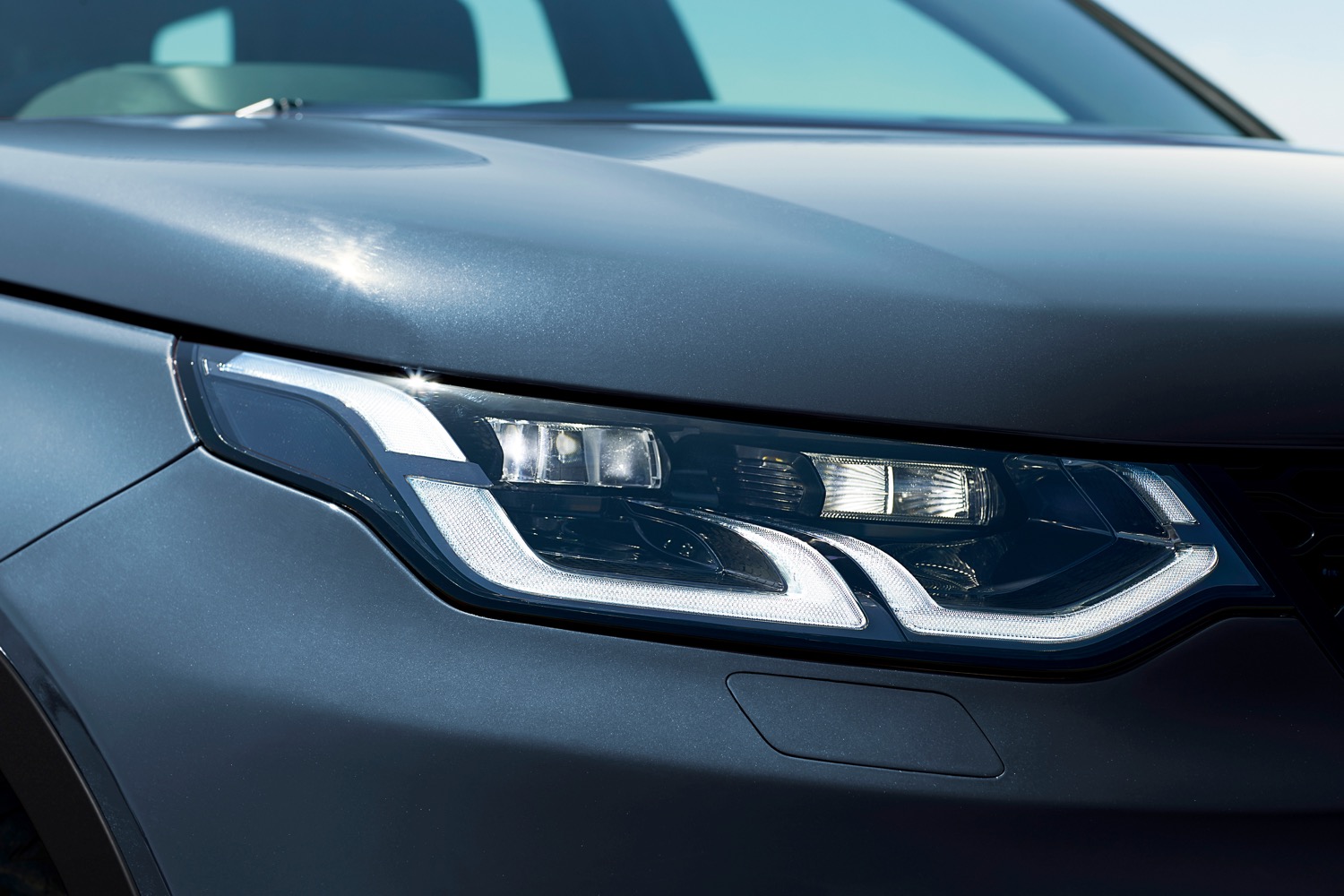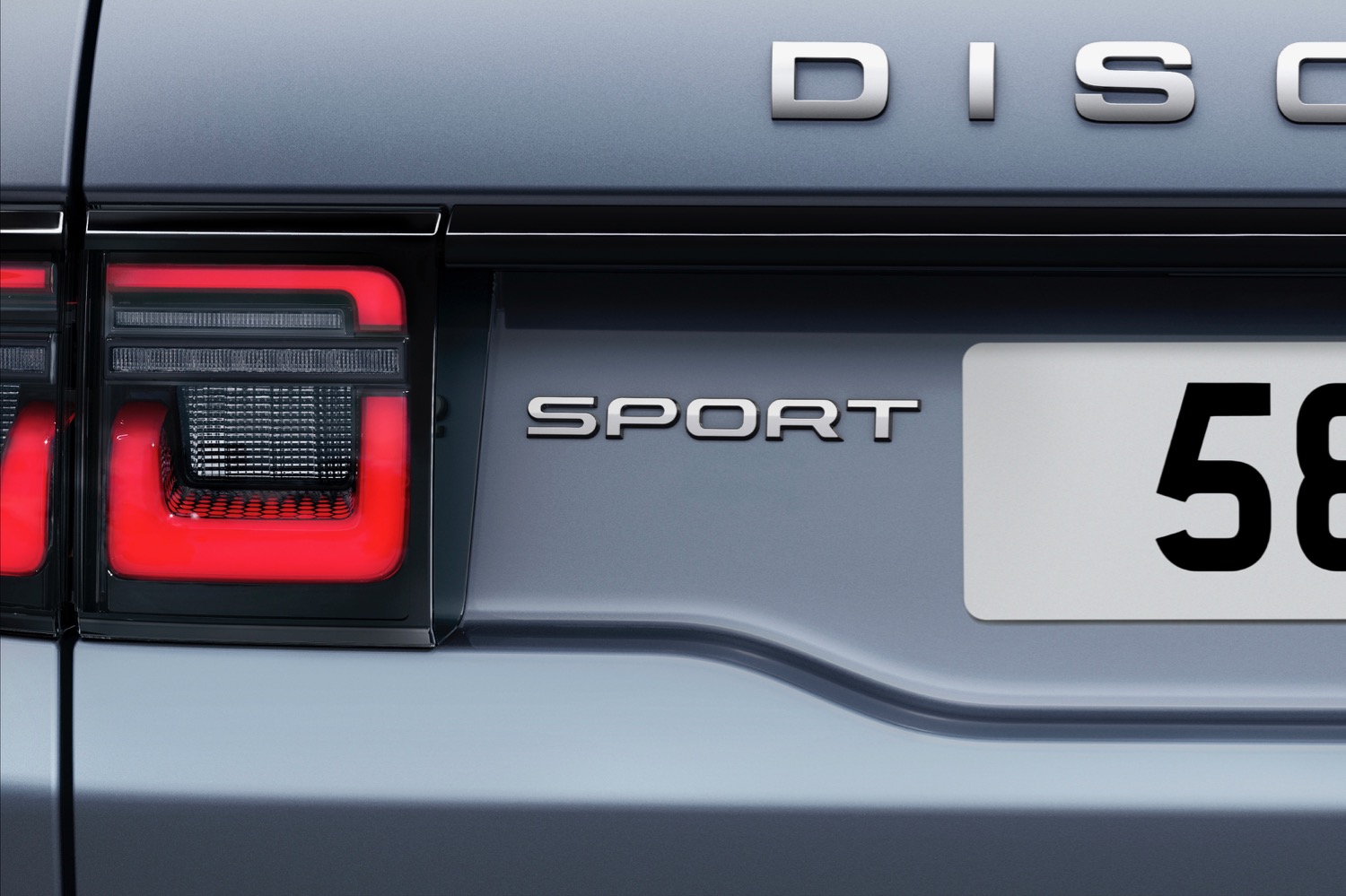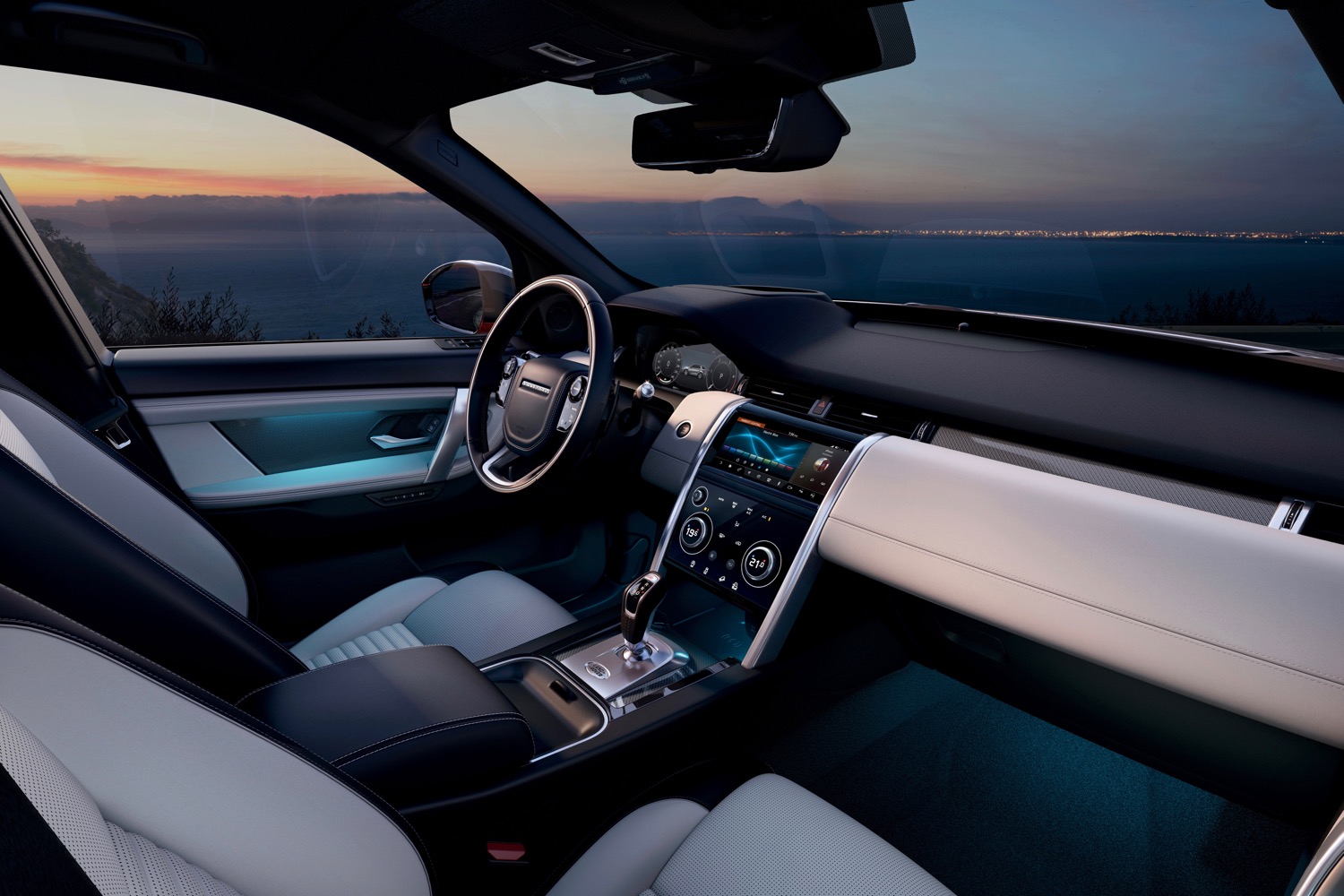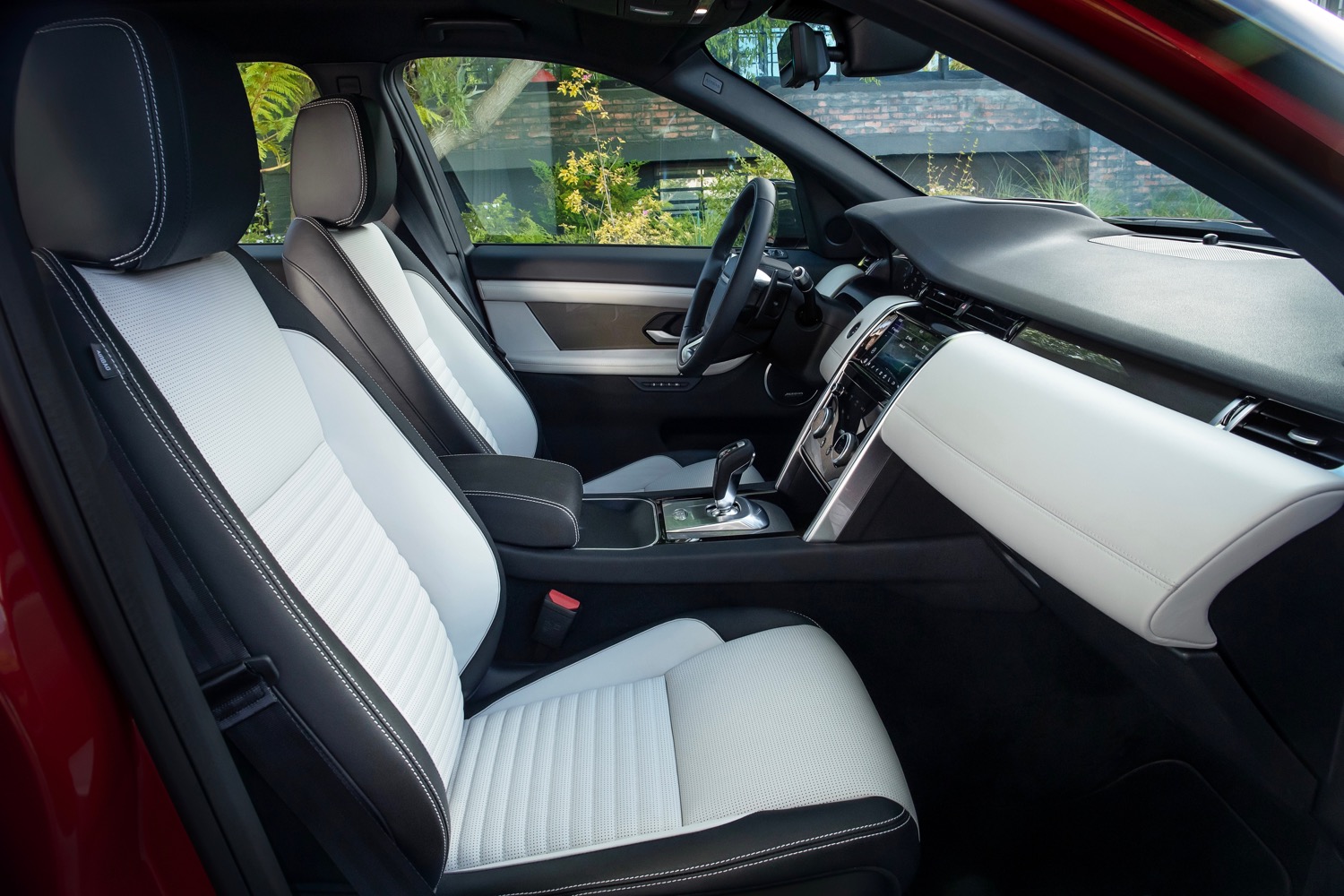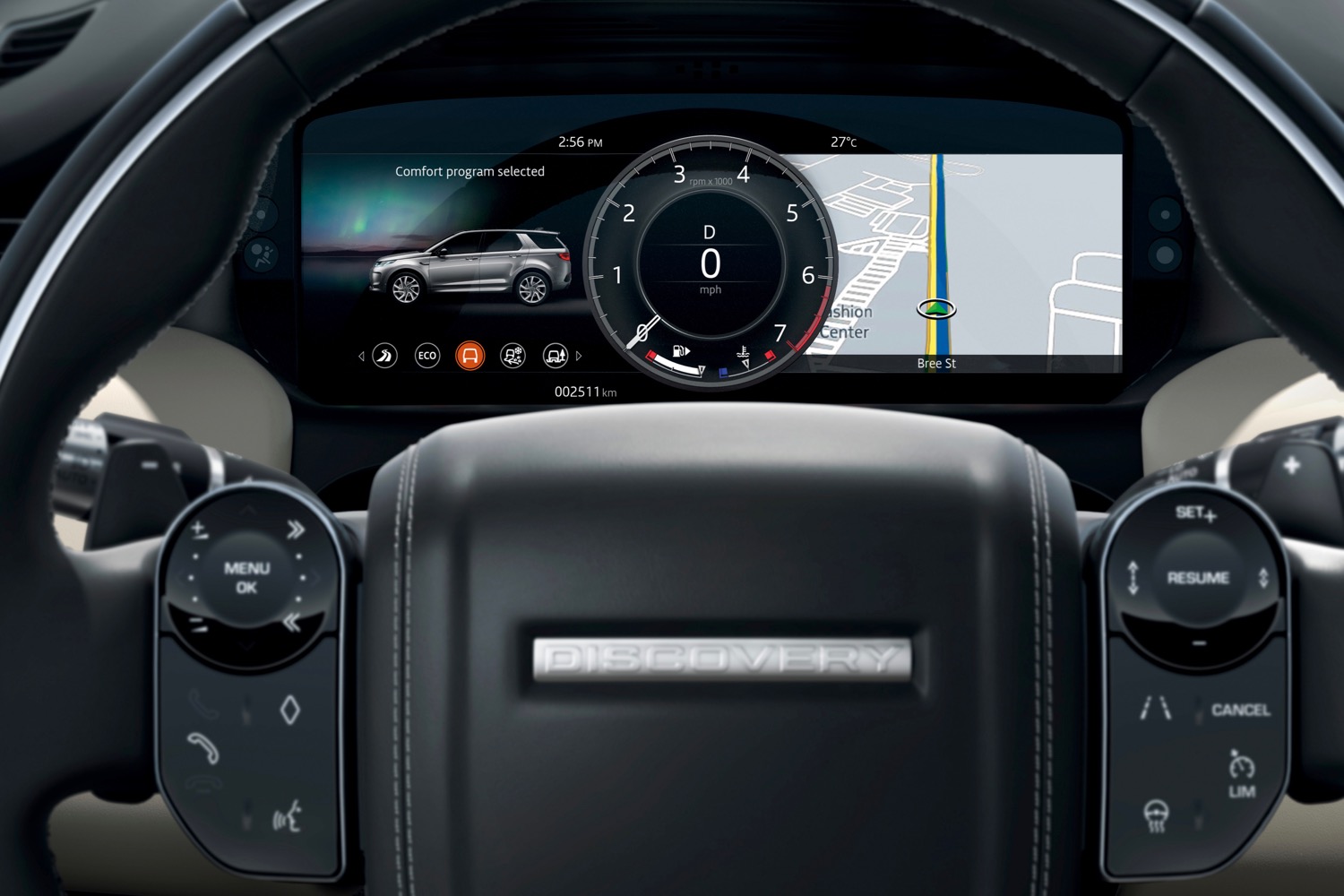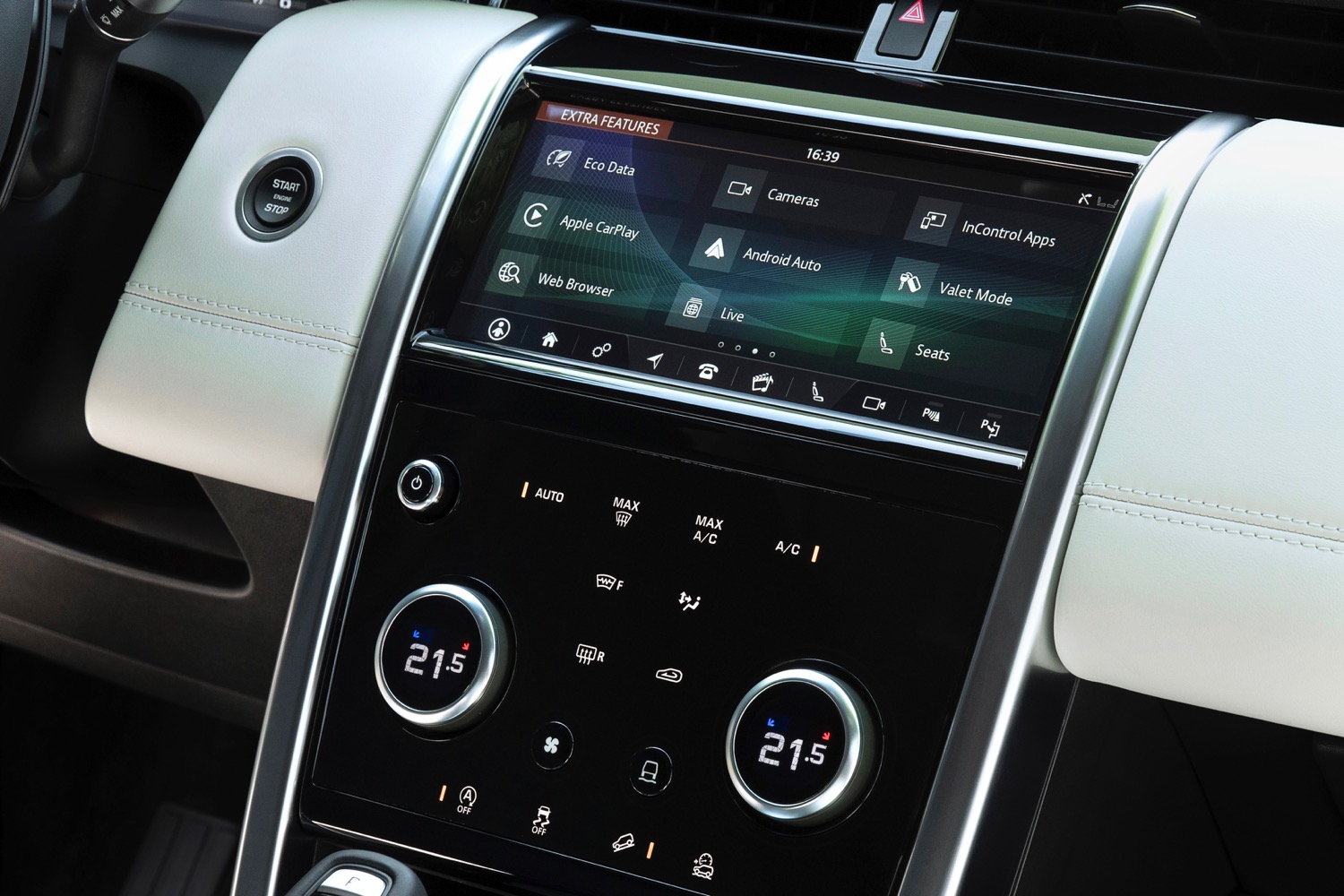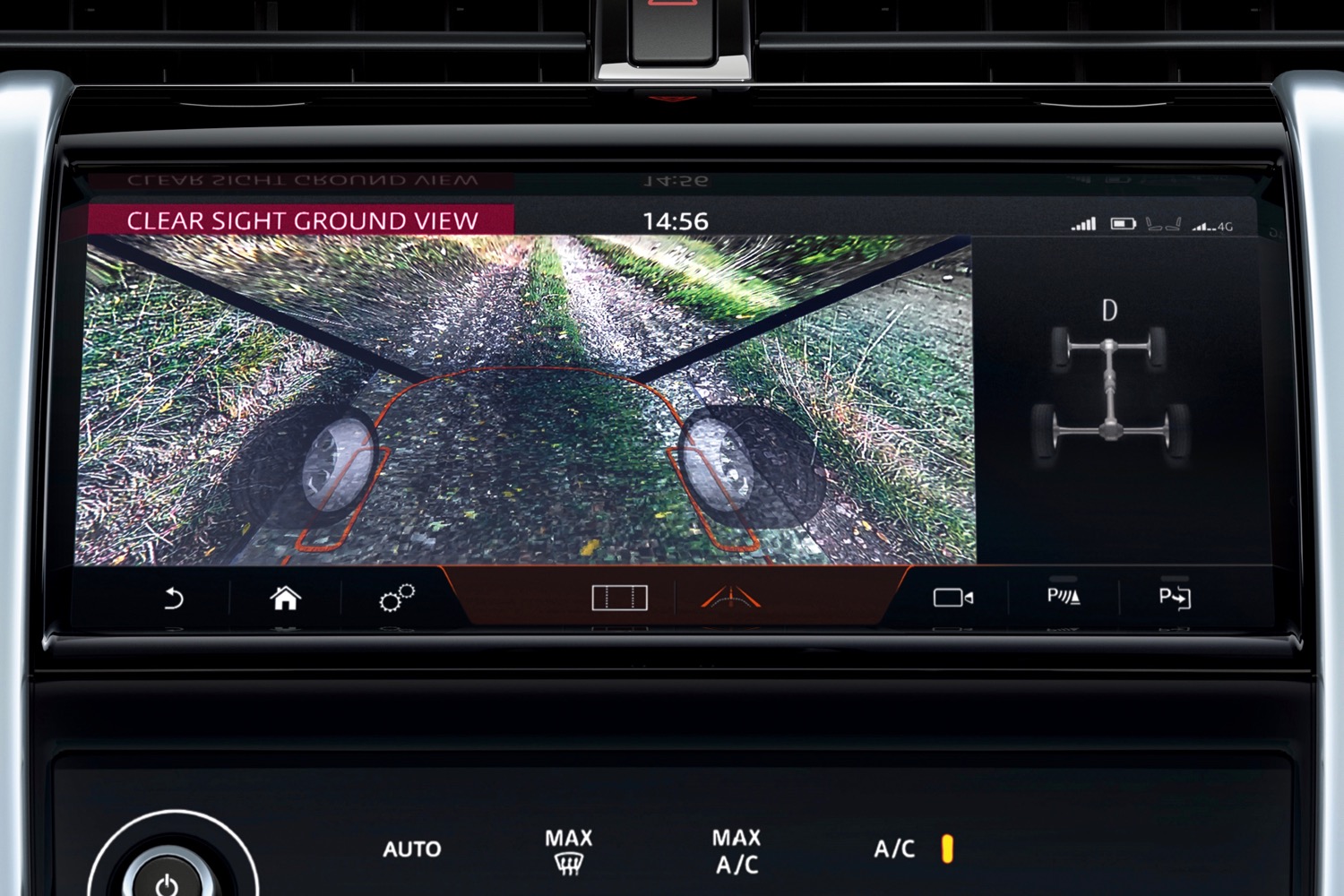In Land Rover’s increasingly complicated lineup, the Discovery Sport is positioned as a more practical alternative to the fashion-forward Range Rover Evoque. With the Evoque getting a redesign for the 2020 model year, it was time for the Discovery Sport to go under the knife as well. Hitting showrooms this summer, the 2020 Land Rover Discovery Sport gets an array of new tech features and a mild-hybrid powertrain, while keeping its traditional Land Rover ruggedness.
The new Discovery Sport is based on the same Premium Transverse Architecture Platform as the 2020 Evoque, making the Discovery Sport 13 percent stiffer than before, according to Land Rover. It may be new under the skin, but the Discovery Sport looks mostly the same on the outside, with a fairly subtle restyling meant to reference its big sibling, the (non-Sport) Discovery. The 2020 Discovery Sport keeps what Land Rover calls a “5+2” seating layout, with a cramped third row designed only for occasional use.
Land Rover gave the 2020 Discovery Sport the same mild-hybrid powertrain as the 2020 Evoque: A gasoline engine teamed with an electric starter-generator and 48-volt electrical system. The powertrain harvests energy normally lost during braking and stores it in a small battery pack to be redeployed later. The system provides an electric boost when accelerating away from a stop. It also can shut off the engine completely when slowing to a stop — all in the name of saving fuel. The mild-hybrid powertrain is rated at 286 horsepower, but base Discovery Sport models will get a stand-alone gasoline engine without the hybrid system that makes 246 hp.
The 2020 Discovery Sport also gets a streaming video rearview mirror. Similar to devices already available from other automakers, it turns the rearview mirror to a screen that shows video from a rear-mounted camera, allowing for an unobstructed view when backing up. Another camera system can show a 180-degree view beneath the vehicle on the central touchscreen. Land Rover claims this will be handy for tackling rough terrain, or just avoiding high curbs. Other available driver aids include adaptive cruise control with steering assist, lane keep assist, autonomous emergency braking, and a driver attention monitor.
Moving elsewhere inside the cabin, the Discovery Sport gets wireless phone charging and a built-in Wi-Fi hot spot for the first time. Apple CarPlay and Android Auto are on the menu as well, along with a Smart Settings function for the infotainment system that can learn driver preferences for things like seat position, music, and climate control.
While it will likely be purchased mostly by rich suburbanites, the Discovery Sport is still a Land Rover, so it needs to be good off-road. It gets Land Rover’s familiar Terrain Response 2 system, which adjusts vehicle settings for different surfaces. Land Rover also boasted that the Discovery Sport can wade into up to 23.6 inches of water — something most owners will likely never dream of doing. A maximum tow rating of 4,409 pounds is fairly respectable for a vehicle of this size.
The 2020 Land Rover Discovery Sport goes on sale in the United States this summer. Pricing will be revealed closer to the launch date.
Updated on June 7, 2019: After this article was originally published, Land Rover reached out to Digital Trends saying it had misstated the output of the mild-hybrid powertrain in the original press release as 296 hp. The article has been updated to include the correct power output of 286 hp.

